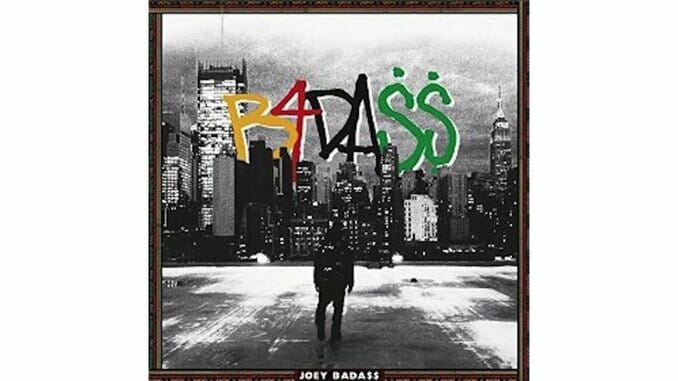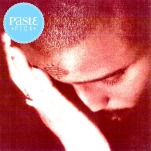Joey Bada$$: B4.DA.$$

There is a scene in the movie Detention where one of the characters, Elliot Fink, is shown to have spent 20 years untouched by any fads, trends or crazes. “Keeping it real” incarnate, he spends 20 years wearing the same clothes, encased in his hoodie like a frozen Neanderthal in mammoth’s wool. Though that same scene also mocks the people around him who were continually influenced by fads, Fink’s life is that one that ends up looking the most ridiculous, the most alien.
Since the release of his debut mixtape, 1999, Brooklyn rapper Joey Bada$$ has been an alien among his peers. Donning a hoodie embroidered with the trademarks of ‘90s hip hop—boom-baps and impressive raps—he has cultivated a style that embodies ‘90s hip hop through and through, a stark contrast to the present-oriented music of most young (and old) rappers. But unlike Elliot Fink or the many previous rappers who have proudly worn this hoodie of authenticity, Joey Bad$$ seems to be self-conscious about his fashion sense. B4.DA.$$, (pronounced “before da money”), his debut album, embodies that ambivalence, featuring the young rapper alternately embracing and discarding his hoodie.
Admittedly, it does fit well. “Big Dusty,” the album’s first single, is a vicious and grimy exercise in lyricism and performance. Joey, who has seemingly limitless flows, approaches the somber instrumental with pure menace, snarling out dizzying rhymes with cold-blooded conviction. Though he falters during the bridge, which dryly rehashes Jay-Z’s famous line, “Men lie, Women lie. Numbers don’t,” by that time the strength of the verses have already made their mark. On “Christ Conscious” he brings that same ruthlessness, barking out grating rhymes despite the instrumental’s jazzy undertones.
-

-

-

-

-

-

-

-

-

-

-

-

-

-

-

-

-

-

-

-

-

-

-

-

-

-

-

-

-

-

-

-

-

-

-

-

-

-

-

-








































